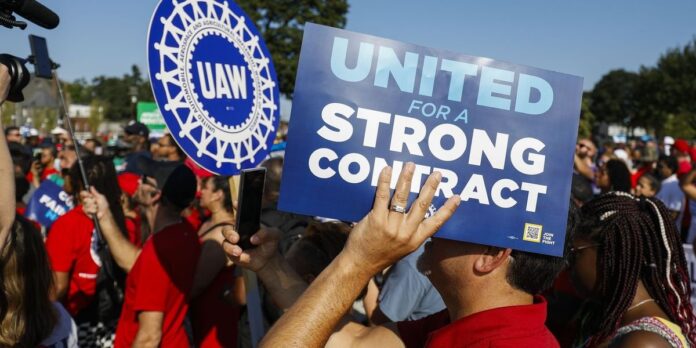Why labor activism is good for America
Courtesy of ROBERT REICH
Friends,
America is in the midst of the biggest surge in labor activity in a quarter century.
The United Auto Workers, the Writers Guild of America, the actors’ union known as SAG-AFTRA, Starbucks workers, Amazon workers, the Teamsters and UPS, flight attendants. The list goes on.
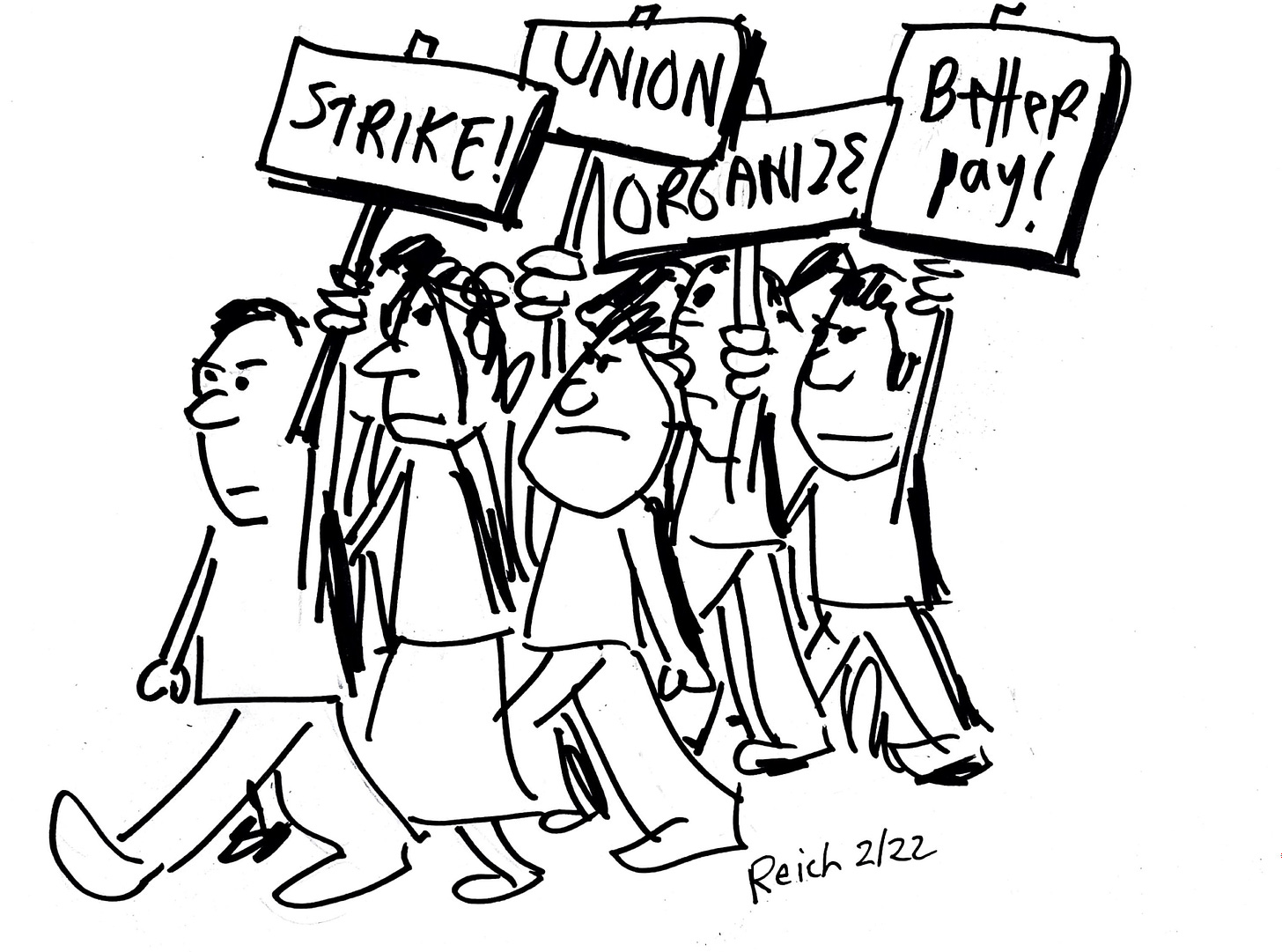
Over 4 million workdays were lost to stoppages last month, according to the Labor Department. That’s the most since 2000. And this was before the UAW struck the Big Three.
Some worry about the effect of all this on the U.S. economy, and view organized labor as a “special interest” demanding more than it deserves.
Rubbish.
Labor activism has proven good for the economy in the long run. And organized labor isn’t a special interest. It’s the leading edge of the American workforce.
What accounts for this extraordinary moment of labor activity?
Not that workers enjoy striking. Even where unions have funds to help striking workers offset lost wages, they rarely make up even half of what’s forgone. Large corporations whose operations are hobbled by strikes often lay off other workers, as the Big Three and their suppliers are now threatening to do.
The reason workers go on strike is their expectation that the longer-term gains will be worth the sacrifices.
Today’s labor market continues to be tight, despite efforts by the Fed to slow the economy and make it harder for workers to get raises. So employers (like UPS) are more inclined to give ground to avoid a prolonged strike.
But something far more basic is going on here. As I travel around the country, I hear from average working people an anger and bitterness I haven’t heard for decades. It centers on several things.
The first is that wages have barely increased while corporate profits are in the stratosphere.
Average weekly nonsupervisory wages, a measure of blue-collar earnings, were higher in 1969 (adjusted for inflation) than they are now.
The American dream of upward mobility has turned into a nightmare of falling behind. Whereas 90 percent of American adults born in the early 1940s were earning more than their parents by the time they reached their prime earning years, this proportion has steadily declined. Only half of adults born in the mid-1980s are now earning more than their parents by their prime earning years.
Nearly one out of every five American workers is in a part-time job. Two-thirds are living paycheck to paycheck.
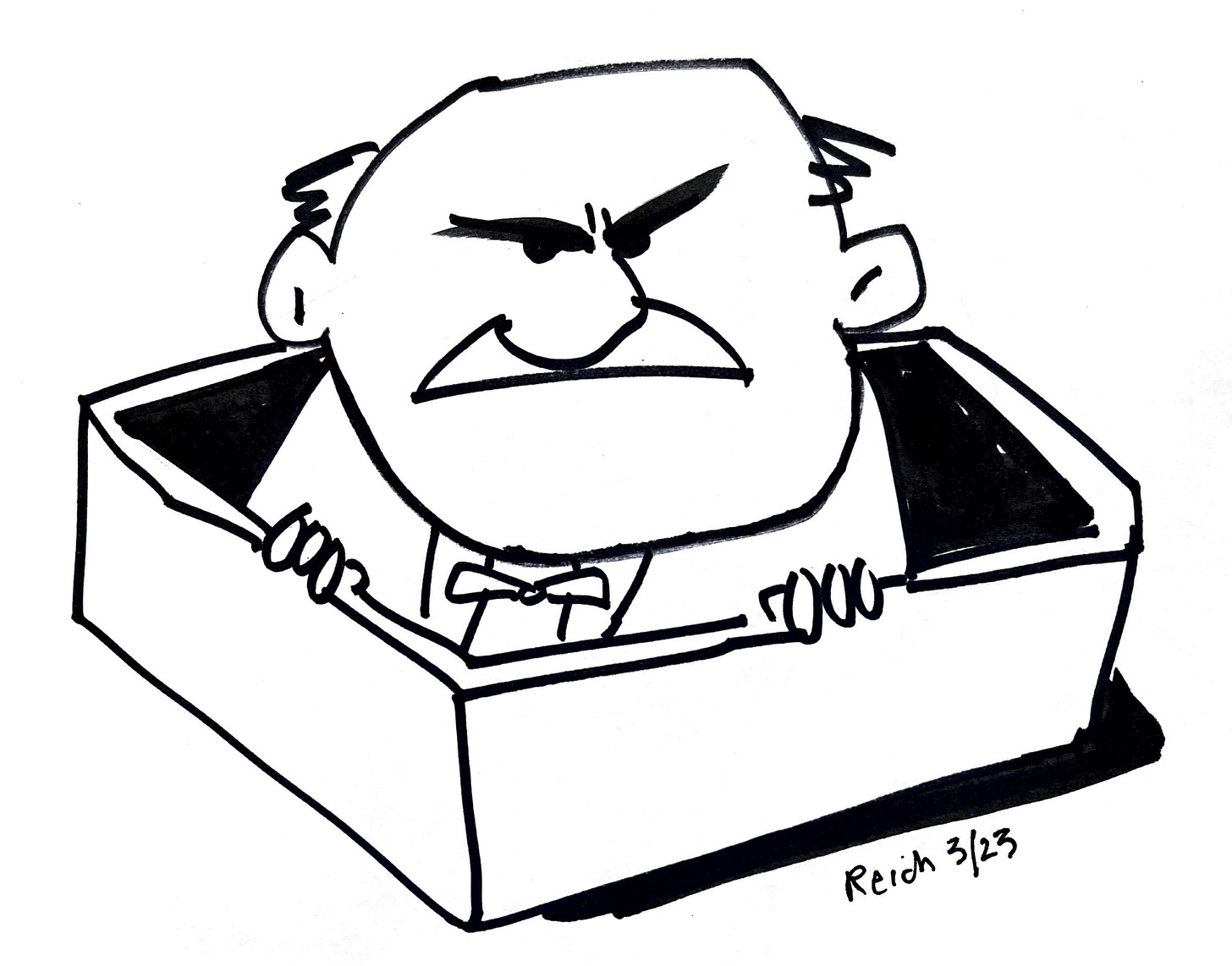
Meanwhile, executive compensation has gone through the roof. In 1965, CEOs of America’s largest corporations were paid, on average, 20 times the pay of average workers. Today, the ratio is over 398 to 1.
Not only has CEO pay exploded. So has the pay of top executives just below them. The share of corporate income devoted to compensating the five highest-paid executives of large corporations ballooned from an average of 5 percent in 1993 to more than 15 percent today.
Corporate apologists claim CEOs and other top executives are worth these staggering sums because their corporations have performed so well. They compare star CEOs to star baseball players and movie stars.
But most CEOs have simply ridden the stock market wave. Even if a company’s CEO had done nothing but play online solitaire, the company’s stock price would have soared.
Stock buybacks have also skyrocketed — a huge subsidy to investors that further tips the scales against working people. The richest 1 percent of Americans own about half the value of all shares of stock. The richest 10 percent, over 90 percent.
Why don’t corporations devote more of their income to research and development, or to higher wages and benefits for average workers? In a word, greed.
Small wonder that unions are more popular than they’ve been in a generation. A Gallup poll published in August found that 67 percent of Americans approve of unions, the fifth straight year such support has exceeded the long-term polling average of 62 percent.
President Biden has pitched himself as the most pro-union president in recent history. More surprisingly, Republican politicians are trying to curry favor with union workers as well. Both parties know that much of the working class is up for grabs in 2024.
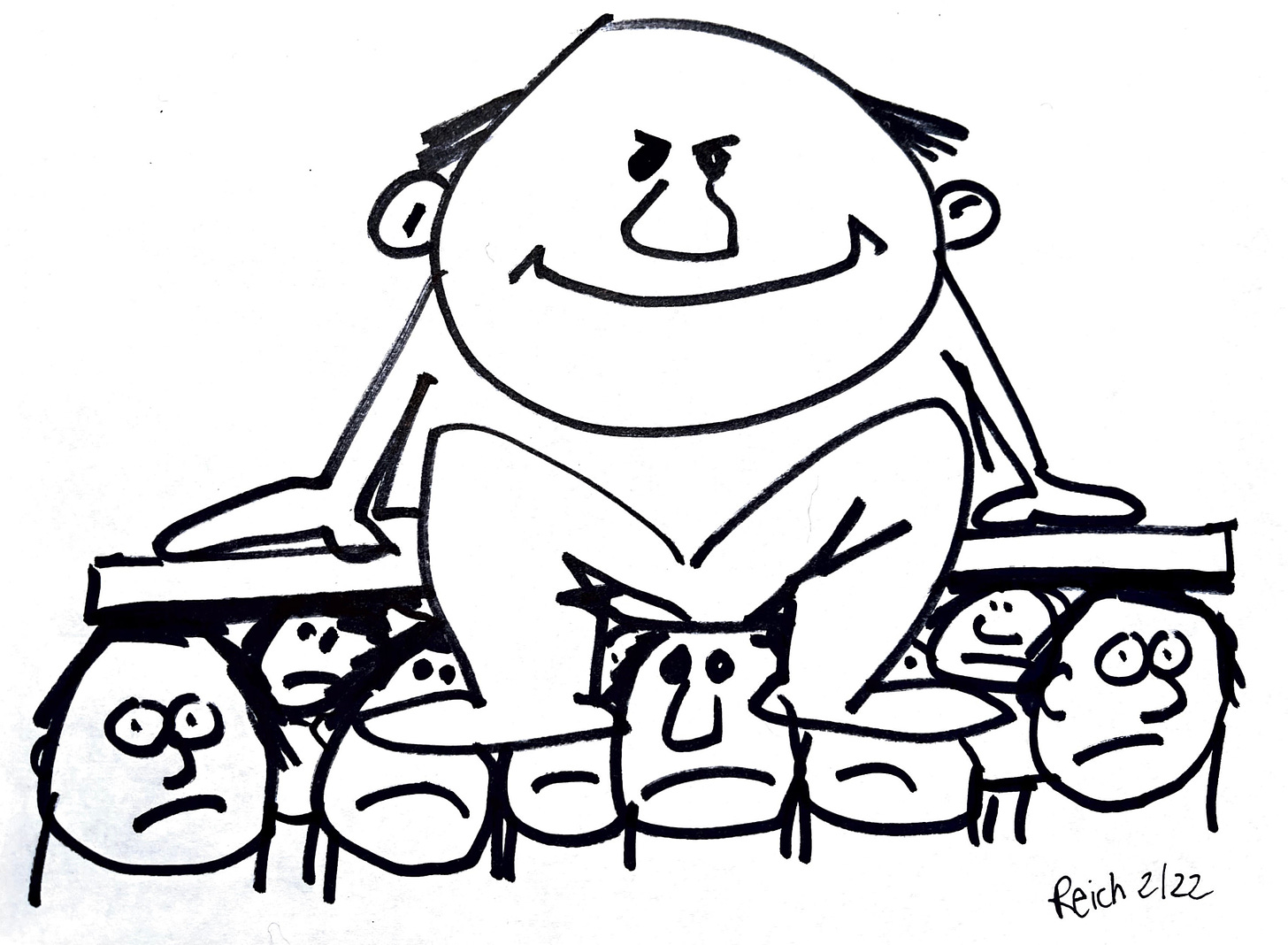
American workers still have little to no countervailing power relative to large American corporations. Unionized workers now comprise only 6 percent of private-sector workforce — down from over a third in the 1960s.
Which is why the activism of the UAW, the Writers Guild, SAG-AFTRA, the Teamsters, flight attendants, Amazon warehouse workers, and Starbucks workers is so important.
In a very real sense, these workers are representing all American workers. If they win, they’ll energize other workers, even those who are not unionized. They’ll mobilize some to form or join unions.
They’ll push non-union employers to raise wages and benefits out of a fear of becoming unionized if they don’t. They’ll galvanize other workers to stage wildcat strikes for better pay and working conditions.
For far too long, America’s top executives, Wall Street traders, and biggest investors have siphoned off almost all the economic gains. This is unsustainable, economically and politically.
It’s economically unsustainable because the only way businesses can sell the goods and services American workers produce is if workers have enough money to buy them. If most gains continue to go to the top, the economy will become ever more fragile, susceptible to downdrafts and crashes.
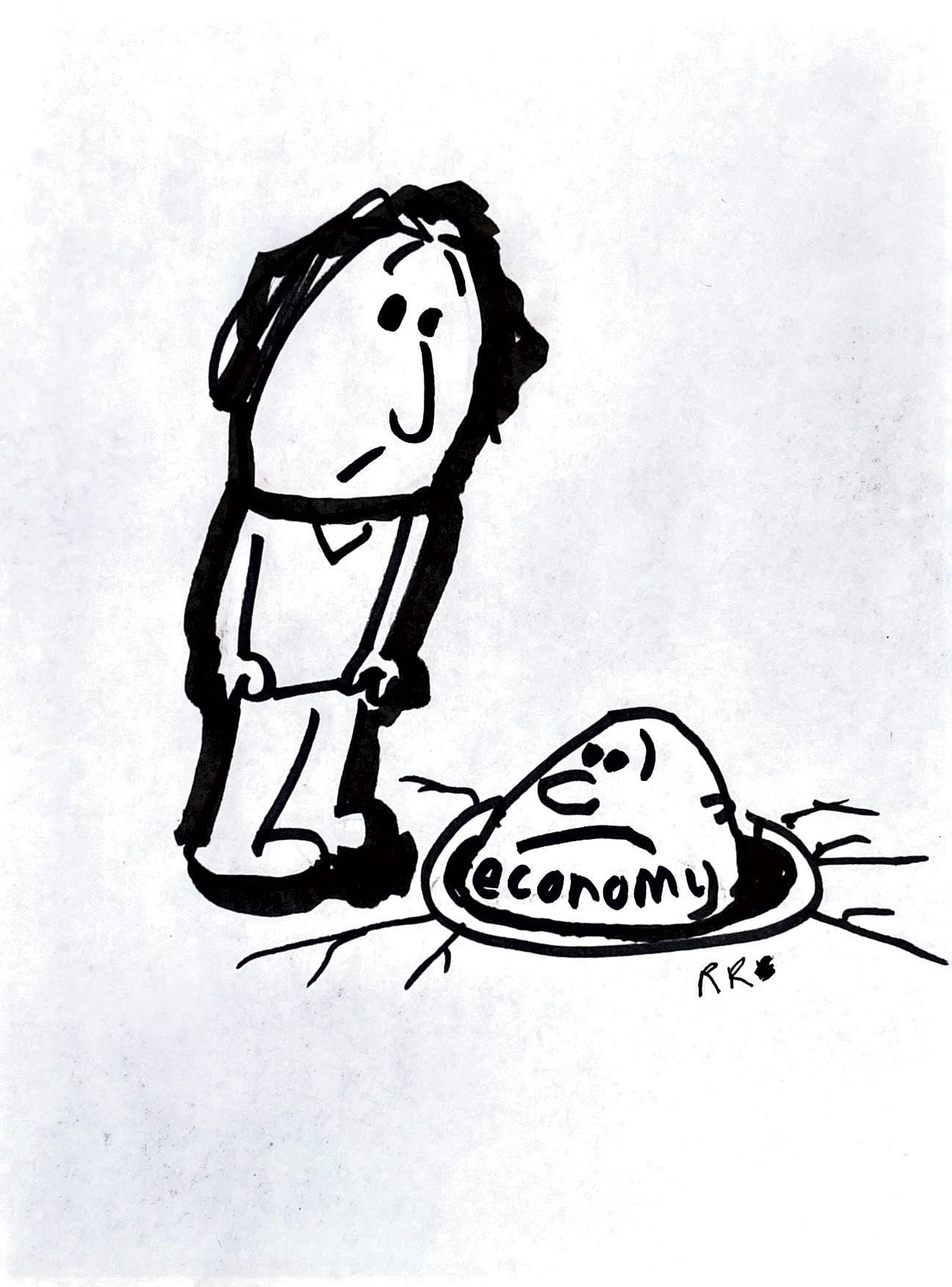
Today’s mainstream media emphasizes the feared negative effects of the current wave of strikes on the U.S. economy, forgetting that the wave of strikes in the 1930s, 1940s, and 1950s helped create the largest middle class the world had ever seen — the key to America’s postwar prosperity.
Stagnant wages and widening inequality are politically unsustainable because they foster anger and bitterness easily channeled by demagogic politicians (re: Donald Trump and his enablers in the Republican Party) into bigotry, paranoia, xenophobia, and authoritarianism.
The current wave of strikes isn’t bad for America. It’s good for America.
Labor is not a “special interest.” It is, in a real sense, all of us.


